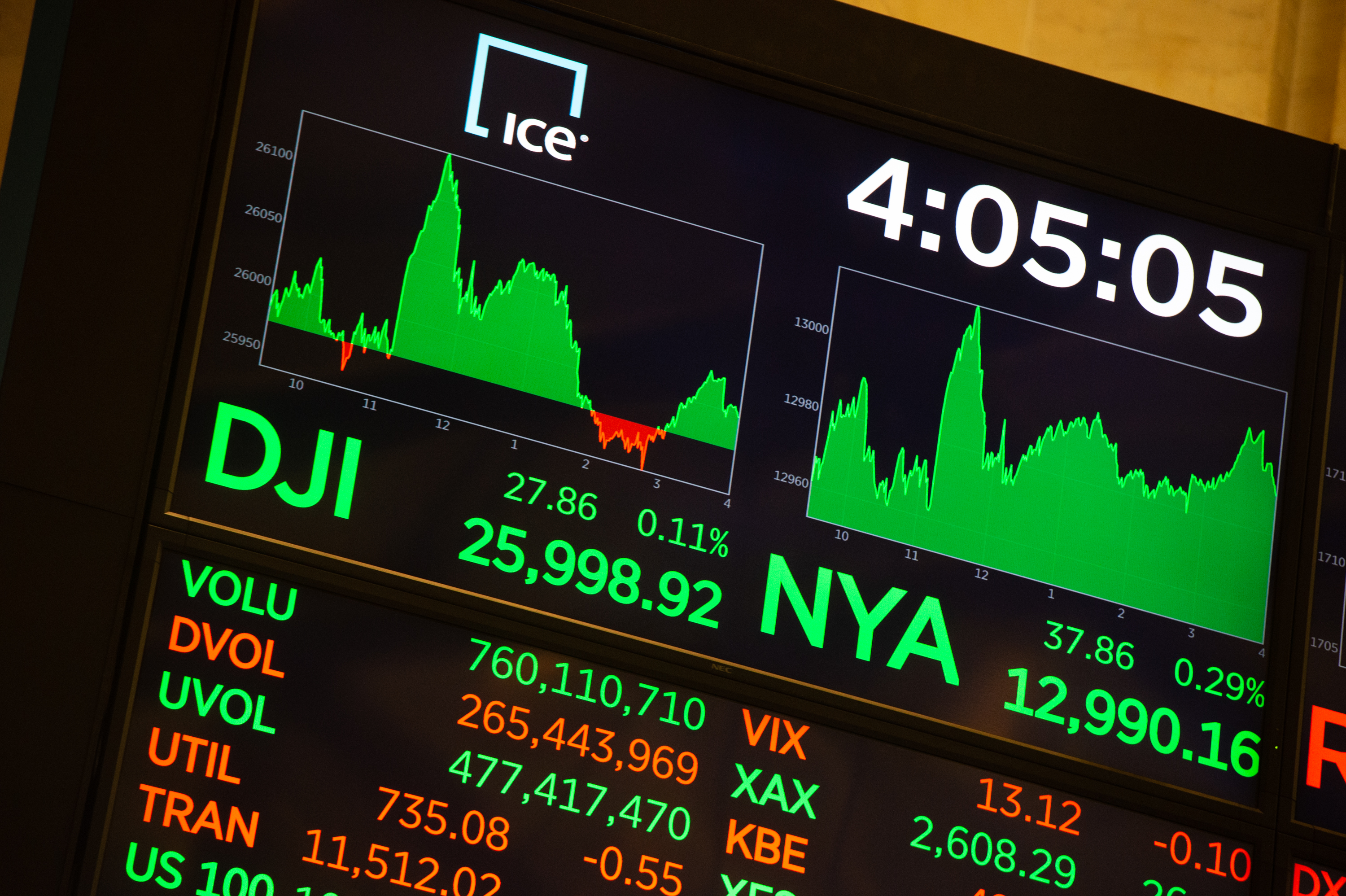Trade war seen among threats to US economic upturn
In light of these trends, the Federal Reserve is expected to lift interest rates two more times this year. (Bryan R. Smith)
New York (AFP) – Ten years after the fall of Lehman Brothers helped spark the global financial crisis, the United States is in the midst of an exceptionally long cycle of economic growth.
Most major economic indicators continue to show a green light but some economists see warning signs.
Market watchers believe a trade war is one thing that could help make the US economy hit the brakes.
Below is an assessment of today’s US economic outlook in green, yellow and red.
– Green: full speed ahead –
Many key measurements are at or near multi-year highs such as those assessing manufacturing, consumer confidence and unemployment.
Other signs of robustness include solid job growth, higher gross domestic product and numerous stock market records following strong corporate profits.
Companies in the S&P 500 reported a 25 percent in second-quarter profits, the biggest increase since 2010, according to FactSet.
– Orange: signs of slowing? –
As the unemployment rate has fallen below four percent, one source of unease for economists has been the prospect of inflation.
That worry appeared to gain some traction after the August jobs report showed a 2.9 percent rise in hourly wages, the biggest jump in nine years.
Another sign of accelerating inflation came with the July reading on personal consumption expenditures, the highest in six years. Other inflation data have been more benign.
In light of these trends, the Federal Reserve is expected to lift interest rates two more times this year.
Higher interest rates could weigh on households in the form of increased mortgage and loan payments. Even more worrisome is the prospect of a rapid spike in inflation that hastens Fed interest rate hikes.
“We might keep raising interest rates and the economy can’t take it and we put the country into recession,” Neel Kashkari, president of the Minneapolis Federal Reserve Bank, told a recent “Marketplace” radio broadcast.
Worries about interest rates have crystalized in recent months over the prospect of an “inverted yield curve,” when short-term bond yields rise above long-term yields, traditionally a predictor of recessions.
The yield curve has been of late closer to inversion than at any time since 2007.
While economists watch the yield curve, some key figures, including Fed Chair Jerome Powell, are skeptical of the indicator’s significance.
– Red: Major worry spots –
“The major risk of a recession is the trade war. It could result in higher inflation and lower consumption as the Fed tightens its monetary policy,” said Gregori Volokhine, president of Meeschaert Financial Services.
Of particular concern is the worsening conflict between Beijing and Washington. President Donald Trump has threatened to impose hefty tariffs on all Chinese exports to the United States, a move that would bruise the Chinese economy.
Another source of unease is the cloud surrounding emerging markets that hold large dollar-denominated debts, with Argentina and Turkey at the top of the list.
“With their currency falling, it’s more problematic for them to pay back any loan they have outside the country, ” said Tom Cahill, a strategist at Ventura Wealth Management. “At some point it’s going to reverberate around the world.”
Others raising this red flag include International Monetary Fund chief Christine Lagarde, who has warned a sudden spike in interest rates could shock the global economy.
Emerging economies currently hold debts of $3.7 trillion in dollars and 644 billion in euros, according to the Bank for International Settlements.
US politics is another potential wildcard for the economy, with the prospect of a Democratic sweep of midterm congressional elections seen as boosting the odds of Trump’s impeachment.
While it is unclear whether Trump would be forced to step down, some market watchers think consumer confidence could be jeopardized by a protracted impeachment.
Disclaimer: This story has not been edited by Siliconeer and is published from a syndicated feed. Siliconeer does not assume any liability for the above story. Validity of the above story is for 7 Days from original date of publishing. Content copyright AFP.


